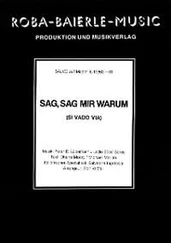Reggie didn't talk about his first year of high school. But he didn't look happy, and if I was faring poorly, logic said he had to be doing worse. I had always been the capable one, if you can imagine.
“Where's your bike?” I asked, when he finally showed up.
“Nah, I'm going to walk.”
This was a breach of protocol. Riding around meant riding.
“You can ride if you want,” Reggie said. “I'm going to walk.” He looked down at his sneakers with great meaning.
It was the last time we'd start the summer that way. It was how we always did it, that first day — get out the bikes and take the measure of things. Tour the developments to see who else was around, recruit, then hit town, the five-and-ten, the Ideal, get a slice at Conca Doro. This was our system, skidding down the streets like some fraternal tumbleweed gusted about. Technically, we were hitting the reset button on our twinhood, but it didn't seem like that much of a cheat. Maybe it didn't matter what went on during the rest of the year. Sag Harbor was outside the rules.
“I'm not going to wait for you,” I said. But I didn't leave him. I wobbled in foolish loops around him, out in front then doubling back. My long legs zagged goofily about. Each time I turned, the flat tires made long farting noises as the rubber collapsed into the asphalt. Reggie kept a solid pace as we headed up Walker Avenue. There were three housing developments in our summer world — Azurest, where we stayed, Sag Harbor Hills, and Ninevah. But Ninevah was a bit of a hike, and only Bobby lived there, and we'd trained him over the years to come to us, so it was off our itinerary. Azurest, check out the Hills, then town.
I didn't see a lot of parked cars. The summer people were trickling in. This was when there were still plenty of unimproved lots and people hadn't started building the really big places. The majority of the houses were two-or three-bedroom jobs built in the '60s. Snubbed-nosed, single-story ranch houses with cement patios and screened-in porches sat next to pastel-colored split-levels with oil-stained carports and unruly hydrangeas for that extra dab of color. Occasionally you came across a harsh-angled beach house, sheathed in rain-streaked gray pine and introduced by dark gravel that leaked out into the street after every big storm. No matter the size or make of the house, the early arrivals were tormented by the same questions. Did the roof keep through the winter, did the pipes hold, did a townie or local bad kid break in and steal the television, or was it just the raccoons and squirrels who had given the place the once-over? Is it still here or did I just dream it?
We passed the house that we always called “haunted,” and for the first time we skipped our ritual, in which one of us dared the other to knock on the door, we argued about it for a few minutes, and then somebody threw a pebble at one of the windows as we ran away screaming. It was a tiny box of a house, shrinking every year into further dilapidation as more roof shingles flew away and the paint scabbed off. A motorboat on its hitch was barely visible for the weeds and bushes, beached there in cracked fiberglass after the Great Flood, and an old barbecue grill lay on its side, half in the woods, legs poking up, like a potbellied animal that had crawled there to die. Like we said, haunted.
There were a bunch of these ramshackle abodes scattered throughout the developments. The hedges grew out into — let's face it — a nappy riot, grasses filled the tire ruts of the driveways, and the front yard became a minefield of old phone books, the swollen pages of info straining against their plastic sheaths. The houses of Those Who Didn't Come Out Anymore. Who knew the stories behind them. Ask my mother about this or that house and she'd say, “They Don't Come Out Anymore,” in such a way that you saw the weeds growing up around her words. There were obvious reasons — economic reversal, no longer living in the Northeast — but my thoughts always tended to the melancholic. Like, the red house on Milton was one generation's gift to the next, but the kids and grandkids neglected it, didn't appreciate the treasure they possessed, and left it to rot. Or, the people who lived on Cuffee Drive hadn't come out in decades, but if they sold the property, what did they have? It was the most important thing they had in their lives and they held out hope that one summer they would return. Maybe the missing neighbors absorbed all our bad luck so that we could have it easy.
Over the years I discovered that there was a variety of haunted. There were houses that were immaculately maintained, but where you never saw any people. The gutters sparkled in the sunlight, the hedges were grazed into clean, perfect geometry, the curtains in the windows just so. The lawn mowers appeared the first day of spring, shredding up and down the rows twice a week, and the sprinklers maintained sure, sibilant order, calibrated to wet one molecule's distance from the property line and no farther. But you never saw a human presence. No lights, no cars, no life-affirming barbecue smoke rising from the deck in the backyard. The houses waited all summer for their owners to appear, and then one day the lawn guy made his last visit and that was that. Well, taking into account people's schedules, it was possible that you might miss seeing your neighbor, never pass them on the street. You could coexist in this Sag Harbor galaxy in perfectly alienated orbits, always zipping into each other's blind spots, or hidden on the dark side of the moon. Of course that could happen to people who lived on the same street. Sometimes it happened to people who lived in the same house.
Someone was writing the maintenance checks, doling out cash to LILCO and the water company, but somewhere they got stalled out. There was a malfunction. I couldn't wrap my head around it. That kind of house was different from the ones that were kept up all summer but were only inhabited one weekend a year, usually Labor Day. The one-weekenders were a familiar group, not known for their planning skills. And for completion's sake, we should also respect that renaissance house, haunted for long years but rediscovered by a new generation out to reclaim some shred of childhood joy, or by new arrivals who finally owned their little piece of the Sag Harbor mystique after so long. They fixed the roof, redid the patio, finally put in a decent water heater that didn't go into a coma after one shower. Performed an exorcism. Kudos.
WE ROUNDED THE BENDon Walker. Marcus was first up in our circuit. The Collins House was a lime-green split-level where we were never allowed upstairs. Marcus's bedroom was on the first floor, next to the rec room, and there we had often loitered around the old Trinitron, but going upstairs was off-limits to kids. Periodically, his mother shouted down directives we couldn't decipher, and Marcus would curse, stomp upstairs, and disappear for a while. When that happened we knew we were getting kicked out into the street. We were already standing when Marcus eventually reappeared, tossing excuses, and we beat it out the sticky screen door to the next afternoon oasis.
The telephone book was still waiting on Marcus's front step, and this year's Oldsmobile, the next in a proud line of Collins Oldsmobiles, was not to be seen. “Let's take the shortcut,” Reggie said. Walker was the last street in Azurest before Sag Harbor Hills, so it was convenient for taking a shortcut to the other side.
We loved shortcuts. For a long time, it was hard to top the thrill of slipping into a slim corridor into the woods, undetectable except for the small mound of kicked-up soil by the side of the road. Sometimes a shortcut was half woods and half a sprint through someone's property, but the best ones cut through two unimproved properties, one in Azurest, the other in the Hills. Even though you were only making your way across two quarter-acre lots, it was like hacking through primeval forests, the gigantic fronds of an alien planet. The only people who had preceded us were fellow explorers. Each time the branches shivered closed behind us, we exited our juvenile existences and joined the fraternity of the brave. I never discovered any shortcuts on my own. I only found out about them when the rest of the gang initiated me. Didn't have the eye, apparently.
Читать дальше












